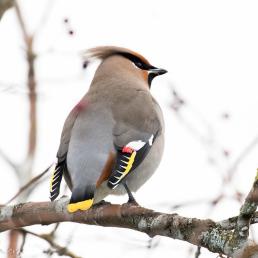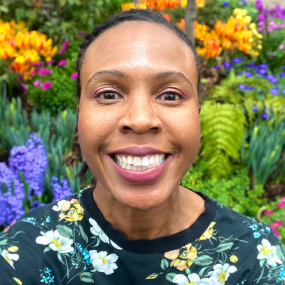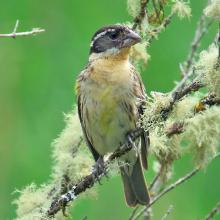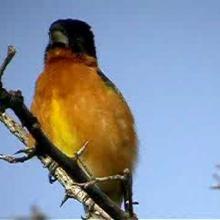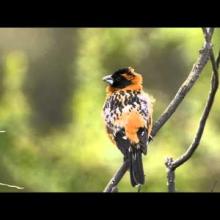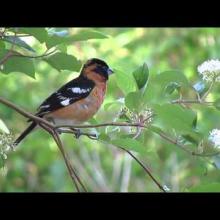

Join BirdNote tomorrow, November 30th!
Illustrator David Sibley and actor H. Jon Benjamin will face off in the bird illustration battle of the century during BirdNote's Year-end Celebration and Auction!
Dr. Clinton Francis is a sensory ecologist who studies how noise pollution affects birds, like this Black-headed Grosbeak. He says sounds from machines and vehicles can really disrupt bird behavior. Although birds rely on hearing to sense predators and prey, and to find mates, their sense of hearing isn’t very good, making them very sensitive to noise pollution from machines and vehicles. Fortunately, there are many ways to help birds by reducing noise pollution.
BirdNote®
How Noise Pollution Affects Birds
This is BirdNote.
[Black-headed Grosbeak song]
Dr. Clinton Francis is a sensory ecologist who studies how noise pollution affects birds, like this Black-headed Grosbeak. He says sounds from machines and vehicles can really disrupt bird behavior — because, for most birds, their sense of hearing isn’t very good.
Clinton Francis: Even though birds do rely on acoustics and hearing quite strongly, your typical bird hears about half as well as we do.
Birds rely on their hearing to sense predators and prey, and for mating. They need to hear each other’s songs and calls in order to communicate and find each other. That makes them very sensitive to noise pollution. Clinton says some species like the Black-headed Grosbeak will just avoid places that get too loud for them.
[Sound of a jackhammer]
Clinton Francis: In our long term study sites in New Mexico, where we've studied how noise from essentially the energy sector restructures bird communities, we see a loss — a complete loss of about one third of species in noise polluted areas.
But Clinton says there are lots of ways to help, from switching to quieter electric vehicles, to using lawn equipment outside of morning hours when birds are singing the most. Rakes are strongly encouraged — or just leave the leaves.
[Black-headed Grosbeak song]
Learn more about what you can do to reduce noise pollution on a special season of the Bring Birds Back podcast. Listen in your favorite podcast app or at BirdNote dot org. I’m Tasha Lawson.
###
Producer: Mark Bramhill
Managing Editor: Jazzi Johnson
Managing Producer: Conor Gearin
Content Director: Jonese Franklin
Bird sounds provided by The Macaulay Library of Natural Sounds at the Cornell Lab of Ornithology, Ithaca, New York. Black-headed Grosbeak ML242553191 recorded by Mike Andersen.
BirdNote’s theme was composed and played by Nancy Rumbel and John Kessler.
© 2024 BirdNote February 2024
Narrator: Tasha Lawson
ID# PodBBB-31-2024-02-28 PodBBB-31
Reference:
https://www.sciencedirect.com/science/article/pii/S0960982209013281
